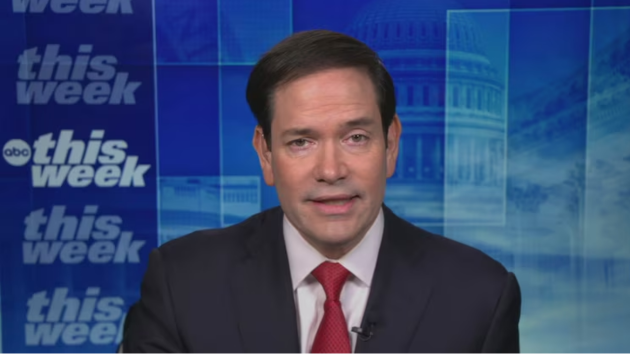Where do legal challenges to abortion bans stand?
Written by ABC Audio ALL RIGHTS RESERVED on June 24, 2024

(NEW YORK) — In the two years since the U.S. Supreme Court overturned Roe v. Wade, litigation has been critical in restoring access to abortion care — but it has not been a successful path in all states.
At least 14 states have ceased nearly all abortion services and seven other states have restrictions in effect, limiting access to the procedure.
State courts around the country have been the site of battles over how to regulate abortion care — with abortion rights advocates making a number of different arguments in their efforts to restore access to care.
“Litigation also serves a very powerful role in educating the public. We’ve seen a lot of what the harms and the dangers of abortion bans are,” Jennifer Dalven, the director of the American Civil Liberties Union Reproductive Freedom Project, told ABC News.
One kind of challenge that has been made in lawsuits challenging abortion bans has been asserting a right to abortion under state constitutions. There have been five court rulings on cases of this nature since Roe was overturned.
In South Carolina, the court found that abortion is not protected under the privacy clause of the state’s constitution.
In Idaho, the court found that abortion is not protected under an unalienable rights clause in the state constitution.
In Indiana, a court found that the state constitution does not have protections for abortion but said there are protections for the life and health of the mother.
In Oklahoma, the court found that the state constitution protects abortion to preserve the life of the mother, but the courts did not speak on whether the right to abortion could be broader — an issue that could still be addressed in the future.
In North Dakota, the court found that the state constitution protects abortions to preserve the life and health of a pregnant woman — but the court did not speak to whether the right to abortion could be extended further.
Rulings are also pending in other states — including Utah, Wyoming, Wisconsin and New Mexico. Litigation has blocked bans in Utah and Wyoming while litigation continues.
“The courts there have been asked to decide whether their constitutions protect the right to abortion, and they have not issued final decisions, yet,” Amy Myrick, a senior staff attorney at the Center for Reproductive Rights, told ABC News.
Colorado, Florida, Maryland and South Dakota will have an abortion question on the ballot in November.
“At the ballot every single time, voters have been asked whether they want to protect access to abortion, they have said yes, and that includes in conservative and battleground states, like Ohio, Michigan and Kansas,” said Dalven.
Active lawsuits in North Dakota, Idaho, Tennessee and Indiana are asking courts for protections for abortions to preserve the life and health of mothers in medical emergencies.
“If those cases go well, it’s not that the state court is going to declare a right to abortion, instead — hopefully — they will clarify the law and increase access for people who are facing horrible medical crises,” Myrick said.
The U.S. Supreme Court has not yet issued a ruling in a pivotal lawsuit brought by the Biden Administration against Idaho over its strict abortion ban. The lawsuit claims that the ban violates the Emergency Medical Treatment and Active Labor Act (EMTALA) — a federal law that mandates that facilities receiving medicare funds must provide patients with “stabilizing” emergency health care.
“The most extreme outcome would be they hold that EMTALA doesn’t preempt state law broadly,” Myrick said.
“Every state that has an abortion ban has a lot of nuance and specificities about what’s in that ban, so [the ruling] will still be pretty fact-specific as to how each ban interacts with EMTALA — even if they found that state law was going to prevail,” Myrick added.
The high court already issued a decision on abortion medication, preserving nationwide access.
A lawsuit brought in Texas by 22 women suing the state over its multiple abortion bans, saying their lives were put in danger due to the bans was dealt a blow last month, when the state Supreme Court issued a decision pushing back against the claims made by women in the lawsuit.
The court argued, in part, that a lower court judge overstepped when she permitted abortions “for any ‘unsafe’ pregnancy,” according to the ruling.
“All pregnancies carry risks. The law limits permitted abortions to address life-threatening conditions ‘aggravated by, caused by, or arising from a pregnancy.’ While merely being pregnant may increase a mother’s risk of death or injury, pregnancy itself is not a ‘life-threatening physical condition’ under the law,” the court wrote.
“In differentiating ordinary risks attendant to pregnancy — those that can be treated short of an abortion — from conditions for which the law permits an abortion, the Legislature drew the line at ‘life-threatening physical condition.’ Because the trial court’s order opens the door to permit abortion to address any pregnancy risk, it is not a faithful interpretation of the law. A trial court has no discretion to incorrectly interpret the law in ordering a temporary injunction,” the court wrote.
Similar lawsuits brought by women over state abortion bans are pending in Idaho and Tennessee.
Kate Cox, a Texas woman who had asked the court for an emergency abortion to preserve her fertility, was denied abortion care for a pregnancy with a severe anomaly. Cox left the state to access abortion care.
Litigation in Kansas, Montana, Alaska, Michigan and Ohio is also fighting state abortion restrictions.
Dalven argues that abortion is an issue that needs to be resolved at the national level — with legislation, warning that if Donald Trump is elected into office, Republicans could use a 150-year-old law, called the Comstock Act, to ban abortion nationwide.
The law, which remains on the books, is an anti-obscenity law that, among other things, “makes it a crime to mail anything that’s ‘indecent, filthy, or vile’ or ‘intended for producing abortion,'” according to the ACLU.
The law could prevent abortion pills, medical instruments, ultrasound machines and other devices used in abortions from being sent by mail.
“His allies have promised to use a law from the 1800s to ban abortion nationwide,” Dalven said.
Copyright © 2024, ABC Audio. All rights reserved.
 KVSP
KVSP 




